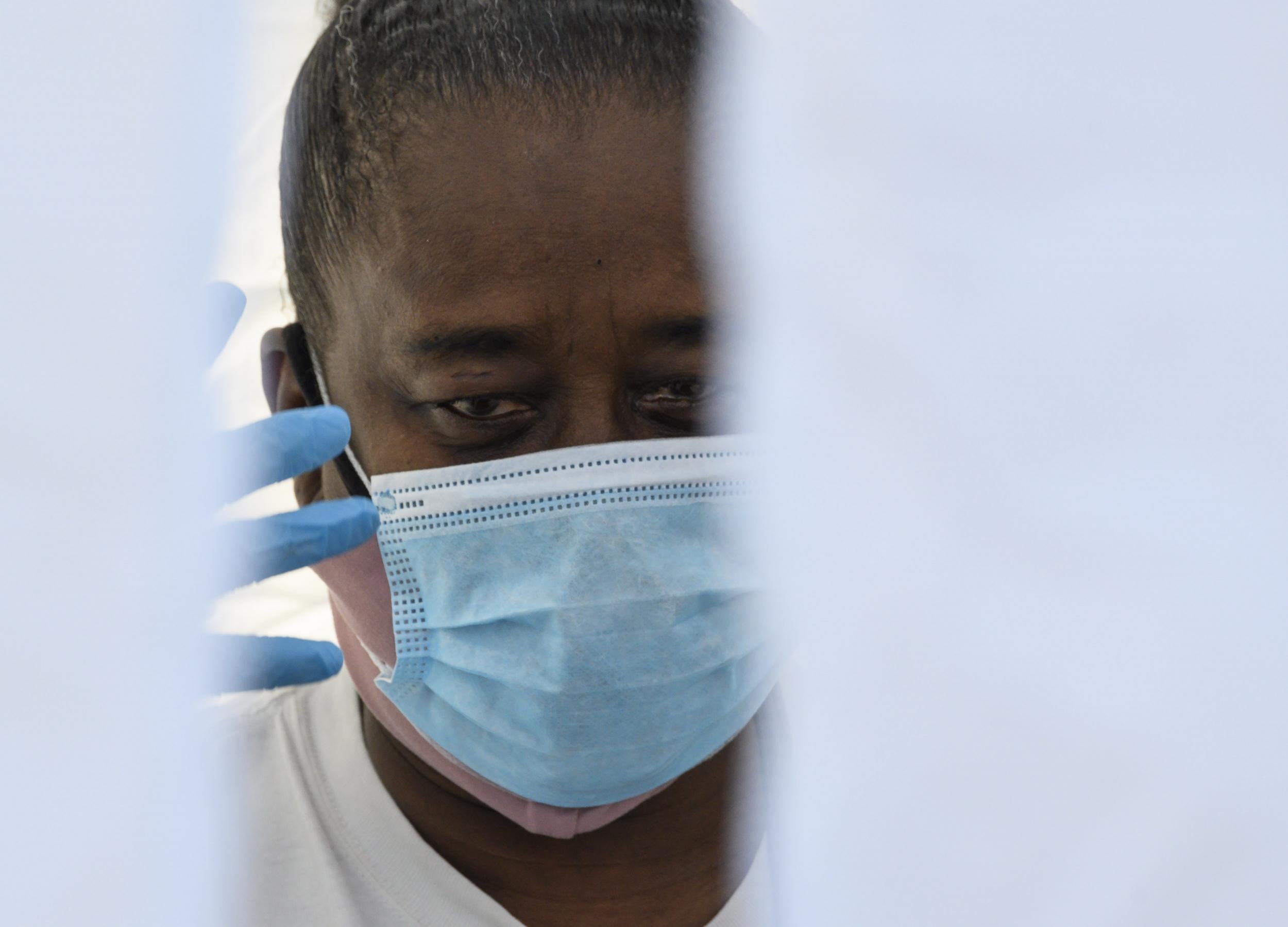Majority of coronavirus patients in US hospitals are black, study finds
They are hospitalised at nearly three times the rate of white and Hispanic people

As the coronavirus spread across the United States, sweeping through low-income, densely populated communities, black and Hispanic patients died at higher rates than white patients.
Crowded living conditions, poorer overall health and limited access to care have been blamed, among other factors. But a new study suggests that the disparity was particularly acute for black patients.
Among those seeking medical care for Covid-19, the illness caused by the coronavirus, black patients were hospitalised at nearly three times the rate of white and Hispanic patients, according to an analysis of patient records from a large health care system in Northern California.
The disparity remained even after researchers took into account differences in age, sex, income and the prevalence of chronic health problems that exacerbate Covid-19, like hypertension and type 2 diabetes.
The finding suggests that black patients may have had limited access to medical care or that they postponed seeking help until later in the course of their illness when the disease was more advanced.
Black patients were also far less likely than white, Hispanic or Asian patients to have been tested for the virus before going to the emergency room for care.
Black patients “are coming to us later and sicker, and they’re accessing our care through the emergency department and acute care environment,” said Dr Stephen Lockhart, the chief medical officer at Sutter Health in Sacramento and one of the authors of the new study.
The study, which was peer-reviewed, was published in Health Affairs.
Delayed care may give the virus more time to spread through households and neighbourhoods, Dr Lockhart and his colleagues concluded. The delays also suggest that minority patients continue to face barriers despite California’s broad expansion of health insurance under the Affordable Care Act.
“How soon you access care, even supportive care, affects how you experience illness and how much pain and suffering you have,” said Kristen Azar, a research scientist at Sutter Health who was the study’s lead author.
She added: “While we don’t necessarily have treatments at this point, there are therapies being developed, and identifying people early on as these treatments become available will be important in order to prevent poor outcomes, like death and being put on ventilators.”
Dr Clyde Yancy, chief of cardiology at Northwestern University’s Feinberg School of Medicine, said the granular study of patient records bolstered cruder public health reports of higher Covid-19 death rates among black Americans.
The data confirm that socioeconomic factors play an outsize role in influencing health status and vulnerability to infection, he added.
“Where and how we live contributes greatly to our health,” said Dr Yancy, who has written about health disparities and the pandemic.
The new study analysed the electronic health records of 1,052 confirmed Covid-19 patients who sought care between 1 January and 8 April at Sutter Health, a health system serving 3.5 million patients in Northern California.
More than half of the 61 black patients who tested positive for the coronavirus were admitted to hospitals, compared with about one-quarter or fewer of the Hispanic, white and Asian patients who tested positive.
Black patients were also more likely than the others to be so sick that they required treatment in an intensive care unit.
Even after the investigators factored out a number of differences between patient groups, black patients were still 2.7 times more likely than others to require hospitalisation when they sought care.
“The important thing we found in this study is that even when we were accounting for all those things, race mattered,” Dr Lockhart said. “That’s a message that’s incredibly important as we think about going forward.”
The study was too small to detect differences in death rates among the patient groups, the authors said. In California as a whole, however, black residents are bearing a disproportionate burden of Covid-19 deaths.
Black residents make up 6 per cent of the state’s population and roughly the same percentage of the state’s Covid-19 cases. But black patients represented 10.3 per cent of Covid-19-related deaths as of 13 May, according to the California Department of Public Health.
One limitation of the study was that researchers did not make adjustments for obesity. Rates of obesity are somewhat higher among black people, and obesity has emerged as a risk factor in patients with more severe complications from Covid-19.
The New York Times
Join our commenting forum
Join thought-provoking conversations, follow other Independent readers and see their replies
Comments
Bookmark popover
Removed from bookmarks